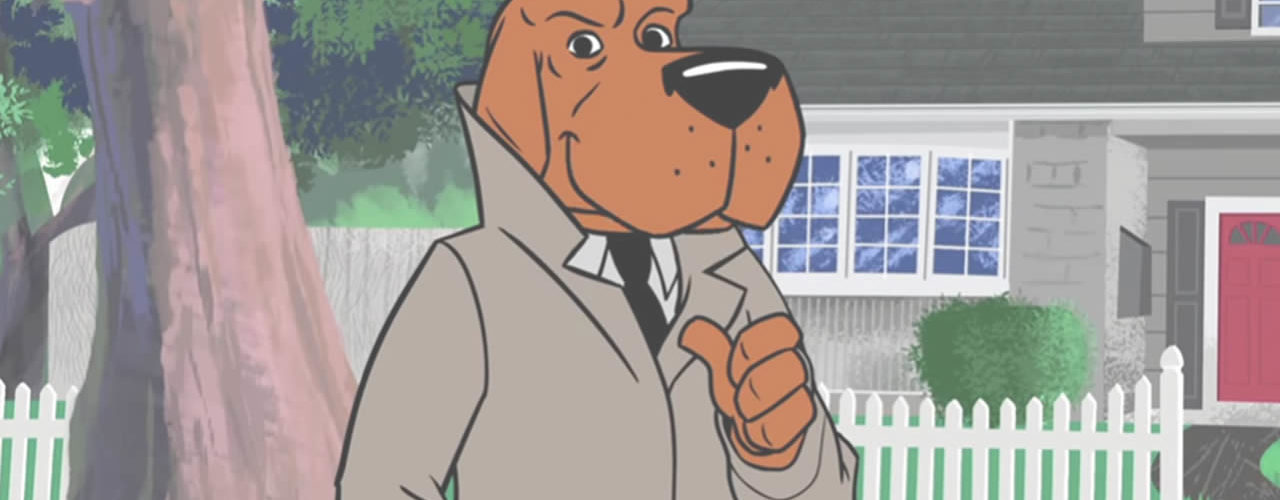Below is a collection of good tips and advice from a brochure we had lying around. It featured “McGruff The Crimedog” from back in the 80’s, and some “streetwise” safety points.
Anyone with a shred of common sense and what is also called “situational awareness” knows these things instinctively. However, with society becoming more self-absorbed and narcissistic, many of these tidbits of wisdom may have been forgotten.
Whenever you are out in public – it is always best to treat your family like VIPs. That is the streetwise mindset.
How to be Streetwise and Safe {also called common sense and situational awareness}
Knowing how to protect yourself – and joining with your neighbors to make your streets safer places to be – can reduce the opportunity for muggers, purse snatchers, and other street criminals to strike.
STREEWISE – THREE BASIC RULES
- Do stay alert. Keep your mind on your surroundings, who’s in front of you and who’s behind you. Don’t get distracted. If you’re worried about crime, ask a friend to accompany you when you go out.
- Do communicate the message that you’re calm, confident, and know where you’re going. Stand tall, walk purposefully, and make quick eye contact with people around you.
- Do trust your instincts. If you feel uncomfortable in a place or situation, leave.
WHEN WALKING
- Plan the safest route to your destination and use it. Choose well lighted and busy streets and avoid passing vacant lots, alleys, or construction sites. Take the long way if it’s the safest.
- Know your neighborhood. Find out what stores and restaurants are open late and where the police and fire stations are.
- Make sure you know where your children are going when they go out and encourage them to play with other kids. Show them safe places in the neighborhood where they can go if they ever feel scared.
- Carry your purse close to your body and keep a firm grip on it. Carry a wallet in an inside coat or side trouser pocket, not in a rear trouser pocket.
- Don’t flaunt expensive jewelry or clothing.
- Walk facing traffic so you can see approaching cars.
- Don’t overburden yourself with packages and groceries that make it hard to react.
- Bring “emergency” change for cab fare, bus fare, or a telephone call.
- Have your car or house key in hand as you approach your vehicle or home.
- If you suspect you’re being followed by someone on foot, cross the street and head for the nearest well-lighted, populated area. Walk quickly or run to a house or store to call police. If you are really scared, scream for help.
- If you are being followed by someone in a car, change direction immediately and make a visible point of writing down the license number.
- Never hitchhike.
IN THE CAR
- Keep your car in good running condition to avoid breakdowns.
- Plan your route in advance, particularly on long or unfamiliar trips. Have enough gas and money to get there and back.
- Drive with all car doors locked. Keep windows rolled up whenever possible.
- Never pick up hitchhikers.
- If you see another motorist in trouble, signal that you will get help and then go to a telephone and call police.
- If your car breaks down, raise the hood, use flares, or tie a white cloth to the door handle. Stay in the locked car. When someone stops, ask them to phone for help.
- Park in well-lighted areas that will still be well-lighted when you return. Lock your car doors.
- Be particularly alert and careful when using underground and enclosed parking garages.
- If you are being followed while driving, drive to the nearest police or fire station, open gas station or other business, or well-lighted residence where you can safely call police. Try to get the car’s license number and description. If no safe areas are near, honk the horn repeatedly and turn on your emergency flashers.
BUSES AND TRAINS
- Try to use well-lighted and frequently used stops.
- Try to sit near the bus driver. Take a seat in the subway car near the conductor.
- Don’t fall asleep. Stay alert!
- In the subway, stand back from the platform edge. Avoid sitting near the exit door. An attacker can reach in and grab a purse or jewelry as the train pulls away.
- While waiting, stand with other people or near the token or information booth.
- If you are verbally or physically harassed, attract attention by talking loudly or screaming.
- Be alert to who gets off the bus or train with you. If you feel uncomfortable, walk directly to a place where there are other people.
IN ELEVATORS
- Look in the elevator before getting in to be sure no one is hiding.
- Stand near the controls.
- Get off if someone suspicious enters. If you’re worried about someone who is waiting for the elevator with you, pretend you forgot something and don’t get on.
- If you’re attacked, hit the alarm and as many floor buttons as possible.
- Jogging, Biking, and Other Outdoor Activities
- Choose routes in advance that are safe and well populated.
- Vary your route and schedule.
- Avoid jogging and biking at night.
- Know businesses that are open and locations of police and fire stations.
- Consider carrying a shriek alarm.
- Consider not wearing your stereo headphones. It’s safer to be alert.
WHAT IF IT HAPPENS TO YOU?
- Remain calm, try not to panic or show any signs of anger or confusion.
- If the attacker is only after your purse or other valuables, don’t resist. You don’t want to escalate a property crime into a violent confrontation.
- Make a conscious effort to get an accurate description of your attacker; age, race, complexion, body build, height, weight, type and color of clothing.
- Call the police immediately, identifying yourself and your location. Contact your local victim assistance agency to help you deal with the trauma that all crime victims experience. They can also help you learn about victim compensation laws and how to follow your case’s progress.
TAKE ACTION TODAY TO BE FULLY STREETWISE
- Help reduce opportunities for street crime in your community.
- Make sure street lighting is adequate and parks, vacant lots, and alleys are free of debris and graffiti. Places that look as though no one cares attract crime.
- Get together with your neighbors and local law enforcement to start a mutual protection program like Neighborhood Watch or Apartment Watch.
- Try to make sure teens in your community have a place for their energies – a cleaned up park, recreation areas, community tasks.
- Volunteer to escort a friend or neighbor who goes to work or class at night.
- If you see a crime being committed, call the police immediately and stay with the victim until they come. Be supportive and offer to accompany the victim to the hospital or police station. How would you feel if you needed help and no one volunteered?







